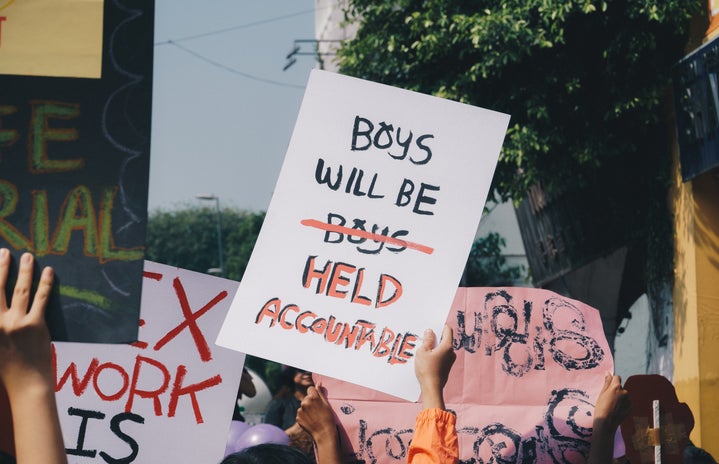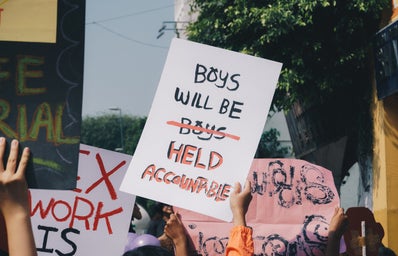Many countries are reporting increasing surges of domestic violence, sexual assault, and gender-based violence (‘GBV’). Our beloved South Africa is no different. In fact, our nation’s level of violence is the highest out of all the countries that are not actively at war. In 2019, we saw the upsurge of public fury over the high prevalence of rape and femicide, and we demanded concrete and immediate governmental action. But, right now, we are in the throws of the COVID-19 pandemic and we have lost our focus on the horrific crimes that are still perpetuated against womxn, children and members of the LGBTQ+ community.
Lifeline SA reported that GBV cases rose by 500% since the start of the lockdown. In the first week, more than 80 000 distress calls were received, made by people subjected to domestic violence. In addition, many social justice organisations (such as Rape Crisis) had their direct service lines suspended during the lockdown which prompted them to move some of their services online. Survivors and people exposed to violence could still visit hospitals and clinics (such as the Thuthuzela Care Centres) to receive help from these organisations, but this was significantly hampered by fear of contracting COVID-19.
By providing support and counselling online, many survivors of GBV were prevented from getting help because of a lack of access to technology and the internet – especially in rural, high-density settlements. This inability to travel to places providing aid was worsened by the public transport system not being in full operation (because of lockdown restrictions). The increase in taxi fares, the unavailability of trains and buses and the fear of contracting COVID-19 played a significant role in seeing that survivors did not receive the support they needed.
The lockdown regulations and isolation measures in place have, in many ways, exacerbated the struggle of womxn, children and queer people in South Africa. These people are restricted to their homes and confined with their abusive partners, whose proneness to violence is often aggravated by the national banning of cigarettes and alcohol. While some may argue that the banning of alcohol reduces the severity of GBV cases, we cannot say that this is always the case. Some people become abusive when they are drunk, while others become aggressively violent when they cannot consume alcohol. GBV is a pandemic in South Africa, but the COVID-19 health crisis has caused us to lose our focus.
The increase in GBV during this period is driven by many factors, which include the increased financial hardship that people face as a result of economic restrictions. Increased levels of anxiety, fear and uncertainty produce stressful environments that precipitate violence against vulnerable people.
GBV is as much a problem as it has always been, and in many aspects it has worsened. A very tragic and shocking way of looking at it is as follows: From the start of the lockdown we have lost many people to COVID-19, but every three hours a womxn is murdered in South Africa. If we calculated the loss of those lives for the period of the lockdown, it would equate to approximately 728 womxn that have been murdered. We mourn the loss of people to COVID-19 every day, and we track the number of deaths reported. While the two pandemics are vastly different, I cannot help but think about the kind of South Africa we may live in if we were to spend the same effort tracking GBV as we do with COVID-19 cases. Imagine if we had the same relief funds as we have focusing on combatting COVID-19 (worth billions of Rands) focused on GBV. Imagine if we ensured the safety of our womxn, children and queer people with the use of our armed forces; imagine if we reported every day on the number of new deaths and new cases of GBV; imagine if we condemned perpetrators of GBV with as much anger as that which we projected onto South Africa’s patient zero.
It is no longer enough to acknowledge the problem of GBV. It is not acceptable to lose our focus on the violence that our people are subjected to. Institutions like Rape Crisis, that work to combat GBV, must be regarded as just as essential as hospitals and research entities working to fight COVID-19. We need to stand together and prevent the COVID-19 health pandemic from becoming a human rights pandemic that allows the men of South Africa to declare war on its womxn, children and members of the LGBTQ+ community.

